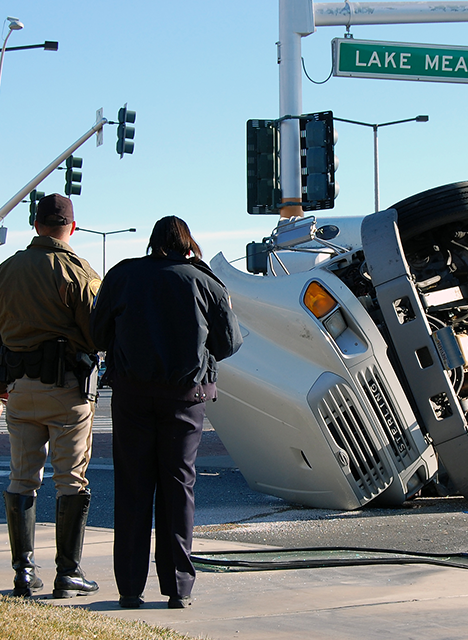Most drivers don't consider the consequences of fatigued driving while they’re on the road. For truckers, it ought to be one of their highest priorities. Not only do fatigued truck drivers put their own safety at risk, but also the lives of others—truckers who battle drowsiness behind the wheel risk falling asleep, leading to catastrophic collisions.
Often, even when drivers manage to stay awake, fatigue can still dull their reflexes, making them less responsive to sudden traffic changes. Crucial incidents could be preventable if only drivers were more alert and capable of making timely maneuvers. Truck.Law is dedicated to helping you claim the compensation you deserve when you're involved in an accident due to trucking negligence.
Drowsy Driving: Dangerously Similar to Drunk Driving
Research indicates that a truck driver who remains awake for more than 24 hours consecutively is impaired, similar to a driver with a blood alcohol content of 0.10, which is well above the 0.04 legal limit for truck operators.
The Federal Motor Carrier Safety Administration has implemented hours of service regulations to mitigate the potential dangers of fatigued truck drivers. These rules state that truckers must not be on duty behind the wheels for more than 14 consecutive hours in 24 hours, with a limit set of 11 hours for actual driving during that time.
When traffic congestion accidents or adverse weather occur, you can see exceptions. Truck drivers can be on duty for up to 60 hours a week for seven days. Logbooks must also be kept up to date by truck drivers documenting their hours. In an attempt to conceal violations, these records are sometimes falsified.
It is up to the trucking companies to be held accountable for compliance with these regulations. However, some individuals prefer to look in the other direction to meet deadlines.
Determining Liability in Truck Driver Fatigue Accidents
The driver involved in a trucking accident could hold liability if fatigue played a part in the events leading up to the collision. Fatigue, being a contributing factor, can happen when the trucking company promotes or demands hours of service in a rule violation.
These offenses occur when logbook falsifications are ignored, or trucking companies set unrealistic deadlines. In any case, the truck driver or company could be held liable for the victim's injuries. In cases where the truck driver is solely at fault, a victim can pursue a claim for compensation from the trucking company or its insurer under a theory of indirect liability—garnering evidence that demonstrates the trucker was an employee of the company and driving drowsy while performing their duties in the events leading up the catastrophic collision.
Proving negligence is a fundamental requirement in most personal injury cases. Negligence implies that a defendant failed to exercise reasonable care in the moments leading up to an accident. When a driver or a company contravenes federal or state trucking regulations designed to combat drowsy driving, a victim may invoke the negligence per se theory in certain states.
This theory offers a shortcut to proving negligence by requiring the victim to establish:
- A law or regulation meant to safeguard people is violated by the defendant
- The victim sustained injuries that the statute or regulation aimed to prevent.
By demonstrating the defendant violated a trucking regulation, a strong case for negligence can be built even in states where the traditional form of negligence per se isn't applicable. Proving that the truck driver's fatigue was the direct cause of the accident is imperative whether relying on negligence per se or a standard negligence theory. Essentially, the accident would have never occurred had the truck driver been less tired and more alert.
Unveiling Liability: A Complex Endeavor
Seeking out the counsel of an experienced truck accident lawyer is paramount when determining if a violation has taken place. It's not always easy to decipher, especially when drivers and companies falsify records related to hours of service compliance. Legal professionals can help you review the accident records with a fine tooth comb.
However, they also tap into valuable evidence from the truck's event data recorder, or "black box." This invaluable data source can help prove whether the driver exceeded the permissible driving hours according to industry regulations.
Truck driver accidents are an intense hardship, and establishing liability is complex. It's vital to remember that truck drivers and truck driving companies share responsibility when accidents occur due to fatigue. These accidents could be avoided through strict adherence to hours of service regulations and more diligence on the road.
If you or someone you know has suffered injuries from a truck driver's fatigue-related accident, don't hesitate to seek legal advice to explore your rights and options.



